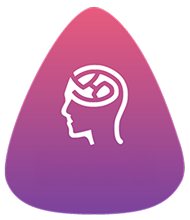Write down one limiting belief about being an entrepreneur and replace it with a practical skill you can learn this semester.
Say aloud a strength you bring to entrepreneurship that disproves a belief holding you back. Repeat it with conviction.
Choose one simple study task you’ve avoided, set a ten-minute timer and begin it without overthinking.
Put a sticky note on your laptop with a counter-belief that inspires you. Read it before every class today.
Replace negative self-talk with a “What if I can?” statement, test it in a low-risk class setting today.
Visualize yourself succeeding at a venture skill you think you can’t do, notice what changes in your energy.
Journal about a class decision where fear or doubt held you back, how would confidence have changed the outcome?
Write the origin story of your strongest limiting belief about entrepreneurship, where did it start and how has it shaped you?
Reflect on three entrepreneurs who challenged limits, what beliefs helped them move past fear?
Note one missed opportunity caused by a limiting belief, how would you approach it differently now?
Describe your internal critic, what voice does it use, and how rational is it when you step back?
List beliefs you hold about your potential as an entrepreneur, highlight ones that feel like permanent limits.
Say yes to a class opportunity you’d normally avoid out of self-doubt, track what happens after you try.
Share a bold idea in class even if you think it isn’t “good enough.” Reflect afterward on the response.
Offer to present something you’d usually avoid in class, focus on showing up, not perfection.
Set a micro-goal that challenges a limiting belief, complete it even if uncomfortable.
Ask for something you need but feared, guidance, resources, or constructive feedback.
Rewrite your course bio with one ambitious phrase that challenges a limiting belief.
Ask a classmate what strengths you bring to projects that you may underestimate in yourself.
Share one limiting belief with a peer, ask if they’ve ever had the same and how they overcame it.
Request feedback after you spoke up in class despite fear, compare their view with how you felt inside.
Ask a peer to share a time they doubted themselves and still pushed through, what helped?
Record three positive things peers said about you this week, note which surprised you most.
Create a feedback loop with a peer to challenge limiting beliefs you both hold.
Rewrite your limiting belief as a challenge: “I’m not innovative” → “How might I test innovation in class?”
Turn “I always fail at…” into “I’m still learning how to…”, notice the mindset shift it creates.
Reframe a past failure in class as data for growth, what did it teach you for the next project?
Translate “I’m not ready” into “I’m preparing”, list one action that moves you closer today.
When you think “I can’t,” ask “Who says?” and challenge the voice behind it.
Change “I never…” to “I haven’t yet…”, create space for forward growth.
Track when your inner voice uses absolutes like “always/never” in class, what assignment triggers them most?
Observe founders in case studies, how is their self-talk after mistakes or risks; what’s their tone?
Catch yourself mid-thought when hesitating in class, what belief sits underneath that pause?
Listen for limiting beliefs during team meetings, do you hear similar ones in your own thinking?
Note physical cues when you doubt yourself, tension, breath, avoidance, what belief links to them?
Notice how quickly you dismiss compliments or chances, what belief might be driving that pattern?


 Give Feedback
Give Feedback
